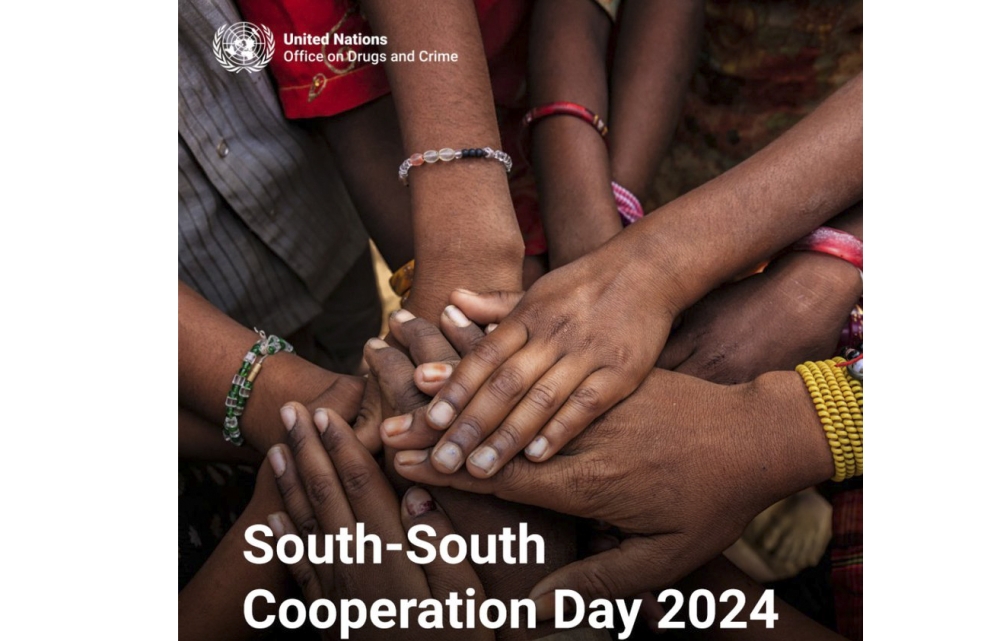

South-South Cooperation is a powerful strategy to solve unique challenges for developing countries, according to experts.
According to the United Nations, South-South cooperation refers to the technical cooperation among developing countries in the Global South. It is a tool used by the states, international organizations, academics, civil society and the private sector to collaborate and share knowledge, skills and successful initiatives in specific areas such as agricultural development, human rights, urbanization, health, and climate change, among others.
ALSO READ: Rwanda&039;s gesture to Zambia and Zimbabwe shows the power of South-South cooperation
On September 12, the United Nations Office for South-South Cooperation (UNOSSC) led the global observance of the United Nations Day for South-South Cooperation under the theme, "A Better Tomorrow with South-South Cooperation.”
VIDEO: UN Day for South-South Cooperation - UN Chief's message
On the same day last year, Manasseh Nshuti, Rwanda’s then Minister of State for East African Community Affairs, said that Rwanda’s approach to cooperation is based on a commitment to doing what the country believes is right for its people, adding that they put a human face on the government's actions and strive for thorough implementation.
ALSO READ: How Rwanda’s interest in the Caribbean is helping fuel South-South ties
"The Government of Rwanda has put more effort in this South-South cooperation because we believe that we can learn very little from those that have gone very far but can learn a lot among ourselves,” he said.
ALSO READ: Rwanda Cooperation Initiative marks UN Day for South-South Cooperation
On Thursday, as the day was marked, Jean Freddy Makuza, the Chief Finance Officer at Rwanda Cooperation Initiative, reiterated how important that cooperation is.
"South-South Cooperation is essentially about collaboration among developing countries. Despite facing similar challenges, these nations have also developed unique strengths,” he said.
"Some of those countries have discovered solutions to issues they once struggled with. While challenges persist, such collaborations have led to significant improvements. These nations can exchange solutions in governance, socio-economic development, and more without relying on Northern countries for answers.”
He explained that South-South Cooperation is more important to its members, particularly because solutions from the Global North often fail to address the unique needs of developing nations.
"Our countries share some similar environments, values, and cultures. A solution that has been successful in one nation can be easily adapted to the context of another. People resonate more with these solutions because they align with their cultural understanding," he said.
Makuza highlighted successful examples of such cooperation, citing a project in Eswatini where Integrated Financial Management Information System (IFMIS) were implemented based on lessons learned from Rwanda.
Chad also adopted the e-tax system from Rwanda Revenue Authority.
ALSO READ: Eswatini borrows Rwanda’s best practices in e-Governance
"They visited us, saw the benefits, and requested our help in establishing the same. This is what South-South Cooperation is all about—learning from one another and adapting solutions to local contexts. Rwanda has also learned from others as well."
Statistics from RCI show that from 2018 to June 2024, as different countries in that cooperation visited each other for learning, Rwanda received 615 delegations with 6,993 delegates from South-South cooperations to share ideas about the strategies to develop their countries.
The most focused on areas are ease of doing business and investment promotion, gender equality and women empowerment, tax administration and e-tax systems, Rwanda's digital transformation journey (digitalization of government services), Rwanda's socio-economic development and transformation journey, and community-based health insurance.


